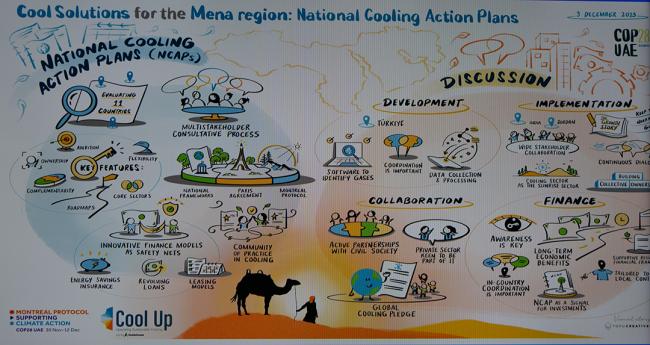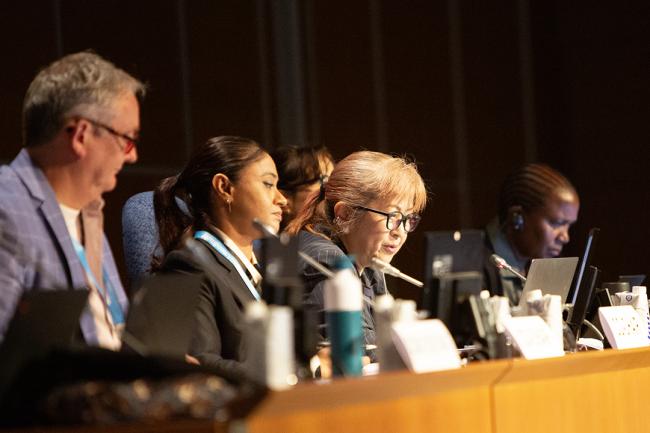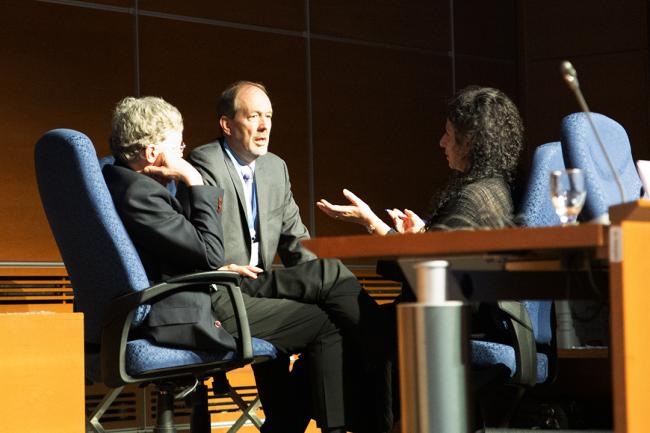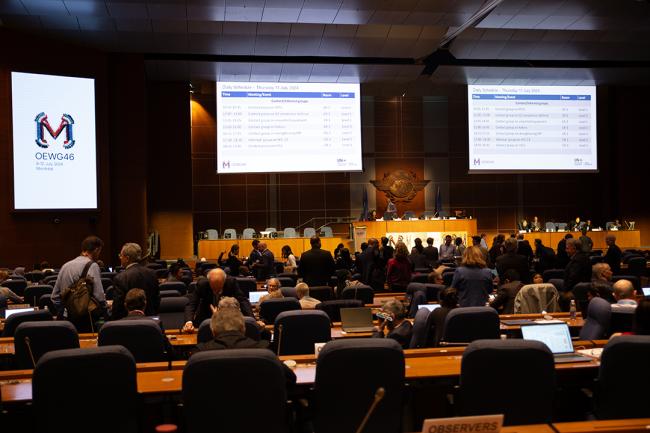The impacts of actions taken under the Montreal Protocol go far beyond the protection of the ozone layer. Actions to address ozone depleting substances and some greenhouse gases also affect human health and the Earth’s climate system. On the penultimate day of the 46th meeting of the Open-ended Working Group (OEWG 46), delegates engaged in candid discussions to address issues that will promote effective implementation of the Montreal Protocol and its Kigali Amendment.
In a brief morning plenary, India, also on behalf of four high ambient temperature (HAT) countries (Bahrain, Kuwait, Qatar, and Saudi Arabia), introduced a draft decision calling on the Technology and Economic Assessment Panel (TEAP) to produce an update by sector, subsector, and region on low- and lower-global-warming-potential (GWP) alternatives to hydrofluorocarbons (HFCs), including challenges with the availability, accessibility, and adoption of these alternatives in HAT countries.
Some countries, including Brazil and the Federated States of Micronesia, welcomed discussion of the draft decision, noting similar challenges in all developing countries. Others, including Canada, the US, and Australia, cautioned against overloading the TEAP with additional and potentially duplicative requests.
Delegates met in contact groups and informal groups for the rest of the day to work through the draft decisions.
On the draft decision presented by the EU on low-GWP propellant alternatives to metered-dose inhalers (MDIs), delegates heard the rationale was to increase coordination with industry in the transition towards MDIs with low-GWP propellants. The prevailing question seemed to be: “Is it too soon to address this issue?” With the roll-out of alternative MDIs not due for another year or two, many thought it was premature to assess their impact and gauge their economic feasibility, especially in developing countries.
The contact group on Article 5 Group 2 compliance deferral focused on the concerns of HAT countries about lack of access to appropriate technologies to meet the demand for low-GWP chemicals in cooling and refrigeration equipment. Some argued TEAP already provides some of the information requested. The proponents stated they needed specific information for HAT countries.
In their discussions on a draft decision on avoiding unwanted imports of energy-inefficient products and equipment, delegates spent some time teasing apart the language to understand the intent of the draft decision submitted by Kyrgyzstan. Other parties suggested narrowing the scope to equipment containing (or relying on) controlled substances not compliant with national minimum energy performance standards.
OEWG 46 also addressed the important issue of the availability of halons. The global production and consumption of newly manufactured halons were eliminated in 2009, but some enduring uses rely on stocks of recovered, recycled, or reclaimed halons for fire safety. Discussions on a related draft decision focused on preparing for the risk of reduced access to halons, and refraining from deliberate destruction of halons unless they cannot be returned to an acceptable level of purity for reuse. They also discussed whether parties should submit information on halon 1301 feedstocks.
Delegates also held discussions on: strengthening the Montreal Protocol’s institutions; reporting on HFC-23 emissions; and very short-lived substances (VSLS).
During the morning plenary, Megumi Seki, Executive Secretary, Ozone Secretariat, announced that Bernhard Siegele, Proklima Programme Manager, German Agency for International Cooperation (GIZ), will transition to another role in GIZ, leaving the ozone family. She acknowledged his invaluable contribution to the development and implementation of various Multilateral Fund projects across the globe and his commitment to the cause of the Montreal Protocol.
All ENB photos are free to use with attribution. For this event, please use: Photo by IISD/ENB | Angeles Estrada Vigil
To receive free coverage of global environmental events delivered to your inbox, subscribe to the ENB Update newsletter.




























































